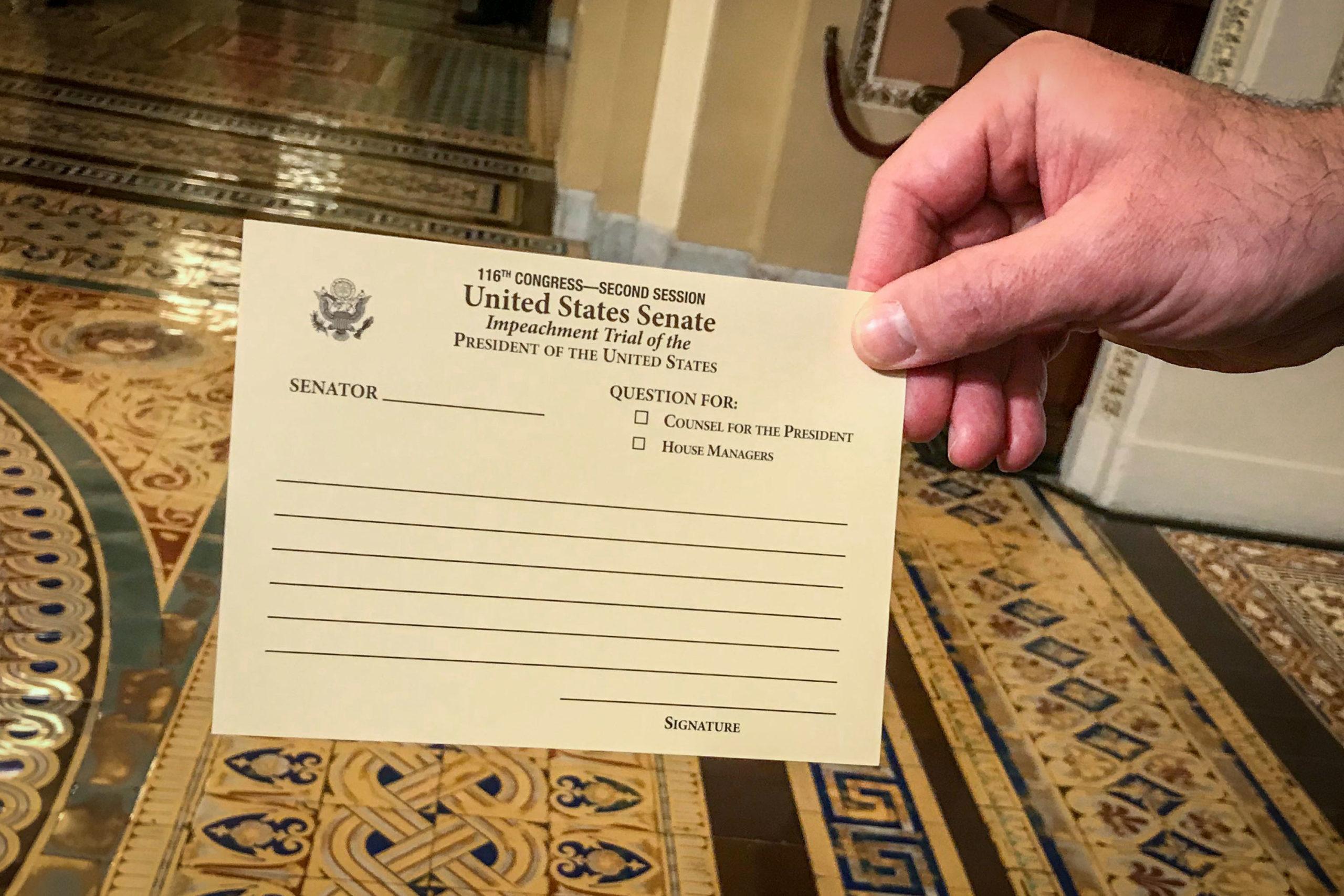
After six days of sitting and listening to presentations from House impeachment managers and President Donald Trump’s lawyers it’s now the senators turn to speak out — sort of.
Senators have 16 hours, spread over two days, to ask their questions in the trial but they can’t do it out loud. Instead, they must submit their questions to the presiding officer, Chief Justice John Roberts. It’s an awkward Q & A format that only the U.S. Senate could come up with:
? Senator writes their question on a card ? Senator stands and states they have a question ? Card is handed off to a page ? Card is taken to a parliamentarian ? Parliamentarian hands it to Chief Justice John Roberts, who then reads it.
Sen. Michael Bennet’s Questions:
- If the Senate accepts the President’s blanket assertion of privilege in the House impeachment inquiry, what are the consequences to the American people? How will the Senate ensure that the current president or a future president will remain transparent and accountable?
- If future U.S. presidents base foreign policy decisions on personal benefit and political gain, how would that affect our relationships with our allies and our adversaries? What would be the long-term effect on U.S. influence and credibility in the world?
Bennet’s questions focused on precedence. During a break, Bennet said it’s important to understand that decisions made in the Senate during this trial have future implications.
“Our democracy rises and falls based on the decisions make in the chamber today, and I really want people to understand that and hear that,” he said.
Sen. Cory Gardner’s Questions:
- What is the role of executive privilege, which Trump’s legal team has signaled it plans to use to block witness testimony from key administration officials?
- How does the long-running dispute between the legislative and executive branches of government, in regard to obstruction of Congress, play into the case against Trump?
- What was communication like between the White House whistleblower, whose complaint prompted the effort to oust Trump over his interactions with Ukraine, and House Democrats?
- How was evidence and testimony surrounding impeachment included in the Senate trial record?
- Arguments have been made that any assertion of protection from disclosure is indicative of guilt and that the House's assertion of impeachment power cannot be questioned by the executive. Is that interpretation of the House's impeachment power consistent with the Constitution? And what protects the executive branch from the House abusing its impeachment power in the future?
Questions thus far have ranged from implications on the Senate’s workload if the chamber extends the trial for additional witnesses to giving the opportunity to whether quid pro quos are really often used in foreign policy by presidents.
California Sen. Dianne Feinstein asked if it’s true that there’s no evidence that the president linked security assistance to an investigation. House impeachment manager Rep. Jason Crow answered no and then went through several examples of where Trump linked the military assistance to investigations he sought.
The question-and-answer session gives lawyers on both sides a chance to make their final points before the senators vote on whether to hear witnesses.
The Associated Press contributed to this report.








